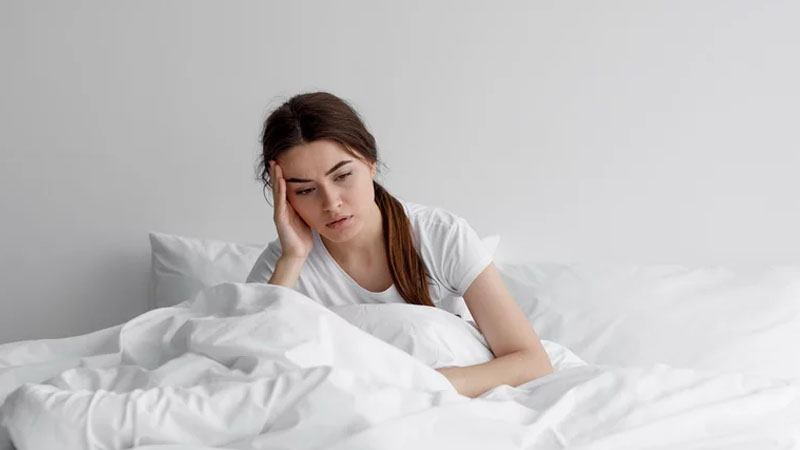
Does Having High Blood Pressure Affect Your Sleep?

The American Heart Association (AHA) states that high blood pressure – also known as hypertension — occurs when the force of your blood pressing against your blood vessels is too high.
Our blood pressure is divided into two measurements: systolic and diastolic. Systolic pressure is the pressure exerted on your blood vessels when your heart pumps out blood. Diastolic pressure is the pressure exerted when your heart is at rest. Blood pressure readings are reported as the systolic pressure over the diastolic pressure.
The National Institute on Aging notes that a reading less than 120 mm Hg over less than 80 mm Hg is considered to be normal, while a reading between 120 and 129 mm Hg over less than 80 mm Hg is elevated. People with a blood pressure of 130 mm Hg or more for the top number, and/or 80 mm Hg or more for the bottom number, are considered to have high blood pressure.
Untreated high blood pressure is dangerous, according to the AHA, because it can lead to numerous health problems, including heart attack, stroke, heart failure, kidney disease or failure, vision loss, sexual dysfunction, angina, and peripheral artery disease.
How high blood pressure and sleep are linked
The U.S. Centers for Disease Control and Prevention (CDC) explains that sleep is very important when it comes to heart health. Normally, during sleep, your blood pressure goes down. However, if your sleep quality is poor, your blood pressure can stay up for a longer amount of time. They note that there are two types of sleep problems, in particular, that can affect your blood pressure: insomnia and sleep apnea.
Harvard Health Publishing reports that people who have chronic insomnia are more likely to have high blood pressure. When chronic insomniacs were compared with normal sleepers, those who took longer than 14 minutes to drift off to sleep during naps had three times greater likelihood of high blood pressure. The researchers believe this correlation may be due to hyperarousal.
According to the Mayo Clinic, people who sleep six hours or less could also have an increase in blood pressure. If you already have high blood pressure, they say not sleeping well could make your blood pressure even worse.
WebMD explains that sleep apnea causes people to periodically stop breathing during sleep. When this occurs, stress hormones rise, which may cause blood pressure to go up. They further explain that when your breathing is slowed or inhibited, it can cause blood oxygen to drop. This triggers the brain to try to counteract the lack of oxygen by sending signals to increase blood pressure and heart rate.
